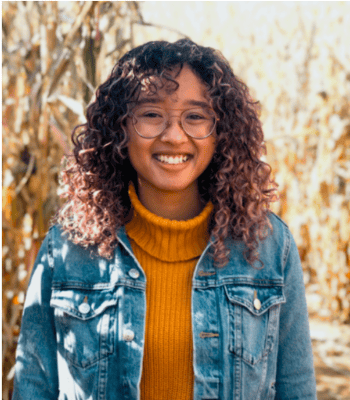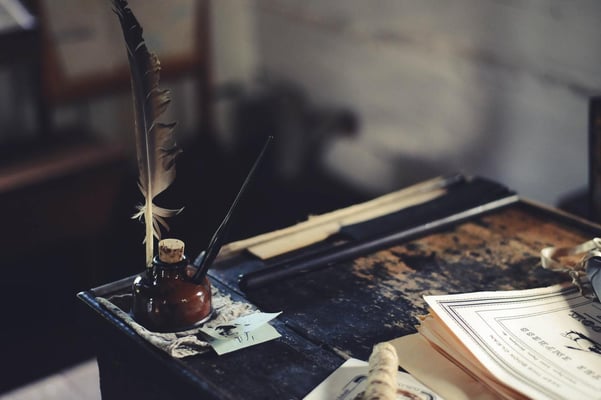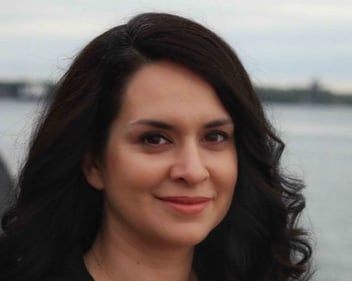At a time when the present can feel unbelievable, the past can offer insight and salve. Martin Luther King Jr. wrote, “We are not makers of history, we are made by history.” So it is that history—from the 1918 Influenza Pandemic, to the Great Depression, to wartimes across countries and centuries—can lend lessons from which to learn, and to incorporate into new writings.
We might glean such lessons from courses, books, storytelling and ancestors. And we might also consider: What untold stories from around the world deserve to be shared? Whose lives should be celebrated, their stories brought to life for readers across the globe? Who isn’t in our history textbooks, and how can we think critically about their absences?
As we considered such questions in preparation for our Historical Fiction Competition, we spoke with YA novelist and historical fiction author Daven McQueen about the importance and allure of bringing the past to life through prose.

What attracts you to the historical fiction genre?
I move between genres pretty often, but it was clear to me as soon as I came up with the idea that historical fiction was perfect for the story I wanted to tell in The Invincible Summer of Juniper Jones. Setting the story in the past took away a lot of the distractions of writing contemporary fiction—technology, instant communication, the overwhelmingness of keeping up with everything happening in the world at all times—and allowed me to focus on my characters and the journey I wanted them to take. I also loved the opportunity to explore a new setting and era and show both the attitudes and aesthetics of the 1950s.
What role does research play in your historical fiction writing?
Research is the groundwork that I build from when writing historical fiction. Admittedly, I didn’t do a ton of research while writing my first draft—I was more focused on developing the characters and storyline. But once I knew those were solid, I went back during editing to dig even deeper into the historical facts. That looked like reading a lot of articles, looking at old pictures, and watching clips and films about the time. I also studied the atmosphere of the time and place by reading firsthand accounts and actually spending some time in Montgomery, Alabama, when I had an opportunity.
How do you approach the challenge of making history feel relevant to YA audiences today?
I think that while historical fiction might feel distant because of the time, the challenges that people were facing are the same as today in many ways. My approach to communicating this is to center my story around strong, well-developed characters. Especially in YA historical fiction, I think it’s so important to have characters who you could move anywhere in history and still have them feel real.

What advice do you have for writers entering our historical fiction competition? What are you looking for in a winning entry?
I’m looking for stories that are well-loved. To me, that means stories that have been written and returned to; with characters that feel like they could be real friends or enemies; and that teach the reader something new about a past point in time. My advice to writers is to take your time with your entry as you think about where, when, and who it’s going to be about. I think the “who” is the most important part. Do your research and build your snapshot of the time you’re writing, but also get to know your characters and consider how you want them to tell your historical story.
What are you working on right now?
My current project is actually not historical fiction—I’m working on a story about a girl who’s being haunted by demons from Philippine folklore. It explores Filipinx history and culture, LGBTQ+ identities, and small, forest-y towns in Maine.
Your writing journey began on Wattpad—a digital writing platform. How did this online writing space shape your career, and what advice do you have for our young writers who are looking to use Write the World to draft a book of their own?
Writing on Wattpad really confirmed for me that I wanted to pursue writing. Being able to share my work with a lot of people, get feedback, and meet other writers is a big part of why I’m still writing today. For young writers on Write the World, my advice is to lean into the writing community as much as you can. I was lucky to make writer friends on Wattpad with whom I still have book clubs, talk about writing, and share my work today. Building a community of other people who understand what you do and why you love it is so powerful.





